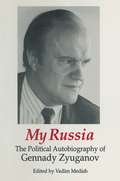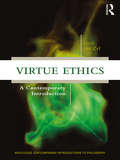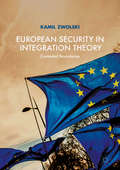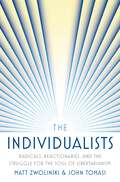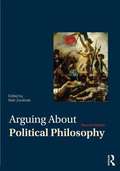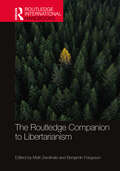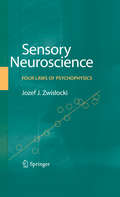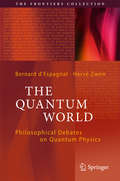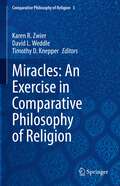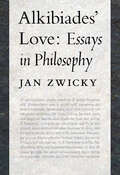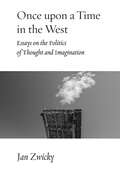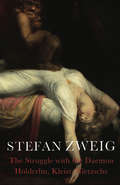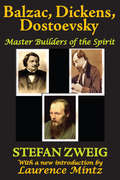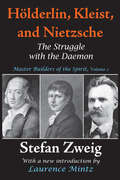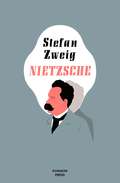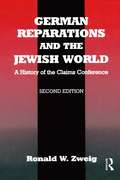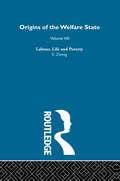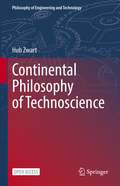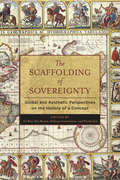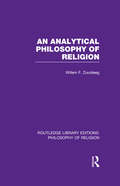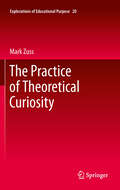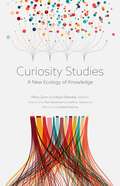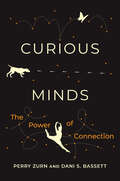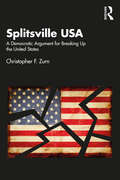- Table View
- List View
My Russia: The Political Autobiography of Gennady Zyuganov
by Gennady Zyuganov Vadim MedishGennady Andreevich Zyuganov is the leader of Russia's resurgent Communist Party and was Boris Yeltsin's strongest challenger in the summer 1996 presidential elections. Although his face became familiar to the world at that time, his ideas and his programme were mainly a subject of speculation. A former village teacher from Orel Province, Zyuganov came to Moscow in the 1980s to work in the ideology department of the Communist Party of the Soviet Union and to complete doctoral work in philosophy at Moscow State University. He is a prolific writer who has rebuilt the Communist Party on his vision of a Russian socialist great power. Today he leads the Communist faction in the Duma and is chairman of the united opposition movement - the National Patriotic Union. This volume is a compilation of Zyuganov's writings on Russia's past and present and her place in the world; Russia's fate under the new leadership of Gorbachev and Yeltsin; his own vision of Russia's future under a new Communist leadership; and his reflections on the 1996 presidential election of the Communist Party of the Russian Federation.
Virtue Ethics: A Contemporary Introduction (Routledge Contemporary Introductions to Philosophy)
by Liezl Van ZylThis volume provides a clear and accessible overview of central concepts, positions, and arguments in virtue ethics today. While it focuses primarily on Aristotelian virtue ethics, it also includes discussion of alternative forms of virtue ethics (sentimentalism and pluralism) and competing normative theories (consequentialism and deontology). The first six chapters are organized around central questions in normative ethics that are of particular concern to virtue ethicists and their critics: What is virtue ethics? What makes a trait a virtue? Is there a link between virtue and happiness? What is involved in being well-motivated? What is practical wisdom? What makes an action right? The last four chapters focus on important challenges or objections to virtue ethics: Can virtue ethics be applied to particular moral problems? Does virtue ethics ultimately rely on moral principles? Can it withstand the situationist critique? What are the prospects for an environmental virtue ethics? ?
European Security in Integration Theory: Contested Boundaries
by Kamil ZwolskiThis book examines federalism and functionalism – two fundamental, yet largely forgotten, theories of international integration. Following the recent outbreak of the war in Ukraine, policy practitioners and scholars have been in search of a deeper understanding of the likely causes of the conflict and its consequences for the European security architecture. Various theories have been deployed to this end, but international and European integration theory remains conspicuously absent. The author shows how the core tenets of integration theories developed after World War I, particularly how they viewed territoriality and geopolitical boundaries, remain as relevant today as they were almost 100 years ago.
The Individualists: Radicals, Reactionaries, and the Struggle for the Soul of Libertarianism
by Matt Zwolinski John TomasiA sweeping history of libertarian thought, from radical anarchists to conservative defenders of the status quoLibertarianism emerged in the mid-nineteenth century with an unwavering commitment to progressive causes, from women’s rights and the fight against slavery to anti-colonialism and Irish emancipation. Today, this movement founded on the principle of individual liberty finds itself divided by both progressive and reactionary elements vying to claim it as their own. The Individualists is the untold story of a political doctrine continually reshaped by fierce internal tensions, bold and eccentric personalities, and shifting political circumstances.Matt Zwolinski and John Tomasi trace the history of libertarianism from its origins as a radical progressive ideology in the 1850s to its crisis of identity today. They examine the doctrine’s evolution through six defining themes: private property, skepticism of authority, free markets, individualism, spontaneous order, and individual liberty. They show how the movement took a turn toward conservativism during the Cold War, when the dangers of communism at home and abroad came to dominate libertarian thinking. Zwolinski and Tomasi reveal a history that is wider, more diverse, and more contentious than many of us realize.A groundbreaking work of scholarship, The Individualists uncovers the neglected roots of a movement that has championed the poor and marginalized since its founding, but whose talk of equal liberty has often been bent to serve the interests of the rich and powerful.
Arguing About Political Philosophy (Second Edition)
by Matt ZwolinskiThis second edition of Arguing About Political Philosophy is the most complete, up-to-date, and interdisciplinary anthology of its kind. Its selections cover both classic philosophical sources such as Hobbes and Rousseau, and contemporary figures such as Robert Nozick and G. A. Cohen. But additional excerpts from economists, psychologists, novelists, and legal theorists help students from diverse intellectual backgrounds to connect with and appreciate the problems and distinctive methodology of political philosophy. This second edition also goes beyond any other anthology on the market in its coverage of traditionally under-represented views such as libertarianism, neo-socialism, feminism, and critical race theory. And it is one of the only anthologies to go beyond A Theory of Justice in its coverage of the political thought of John Rawls. The volume is divided into 3 parts - Foundational Concepts; Government, the Economy and Morality; and Applied Political Philosophy - covering core arguments and emerging debates in topics like: social contract theory political economy property rights freedom equality immigration global distributive justice The new companion website offers valuable resources for instructors and students alike, including sample quizzes, exams, and writing assignments, extensive study questions for each reading, and an online version of the "What's Your Political Philosophy" self-assessment.
The Routledge Companion to Libertarianism (Routledge International Handbooks)
by Matt ZwolinskiHave you ever wondered what libertarians think about vaccine mandates? About gun control? About racial and sexual inequalities? While libertarianism is well known as a political theory relating to the scope and justification of state authority, the breadth and depth of libertarian work on a wide range of other topics in social and political philosophy is less well known. This handbook is the first definitive reference on libertarianism that offers an in-depth survey of the central ideas from across philosophy, politics, and economics, including applications to contemporary policy issues. The forty chapters in this work provide an encyclopedic overview of libertarian scholarship, from foundational debates about natural rights theories vs. utilitarian approaches, to policy debates over immigration, punishment and policing, and intellectual property. Each chapter presents a comprehensive and up-to-date overview of historical and contemporary libertarian thought on its subject, and thus serves as an essential guide to current scholarship, and a starting place for discovering future lines of research. The book also contains a section on criticisms of libertarianism, written by leading scholars from the feminist, republican, socialist, and conservative perspectives, as well as a section on how libertarian political theory relates to various schools of economic thought, such as the Chicago, Austrian, Bloomington, and Public Choice schools. This book is an essential and comprehensive guide for anyone interested in libertarianism, whether sympathizer or critic.
Sensory Neuroscience: Four Laws of Psychophysics
by Jozef J. ZwislockiSensory Neuroscience: Four Laws of Psychophysics organizes part of psychophysics -- a science of quantitative relationships between human sensations and the stimuli that evoke them. Although psychophysics belongs to sensory neuroscience, and is coupled to neurophysiology, it has also branched out to various specialized disciplines, including the disciplines of vision and hearing, ophthalmology, optometry, otology, and audiology. Due to this diversification and fragmentation, psychophysics has had an ad-hoc, phenomenological orientation. Besides Weber's law of differential sensitivity, and the still-controversial Stevens' power law, it has lacked a systematic grid of scientific laws. Sensory Neuroscience: Four Laws of Psychophysics provides valid unifying principles and systematic applications for this otherwise fragmented precursor of experimental psychology, and defines four multisensory relationships of substantial generality between sensations and the underlying stimulus variables. This book will be particularly useful to auditory researchers, experimental psychologists, and behavioral neuroscientists.
The Quantum World
by Hervé Zwirn Bernard D'EspagnatIn this largely nontechnical book, eminent physicists and philosophers address the philosophical impact of recent advances in quantum physics. These are shown to shed new light on profound questions about realism, determinism, causality or locality. The participants contribute in the spirit of an open and honest discussion, reminiscent of the time when science and philosophy were inseparable. After the editors’ introduction, the next chapter reveals the strangeness of quantum mechanics and the subsequent discussions examine our notion of reality. The spotlight is then turned to the topic of decoherence. Bohm’s theory is critically examined in two chapters, and the relational interpretation of quantum mechanics is likewise described and discussed. The penultimate chapter presents a proposal for resolving the measurement problem, and finally the topic of loop quantum gravity is presented by one of its founding fathers, Carlo Rovelli. The original presentations and discussions on which this volume is based took place under the auspices of the French “Académie des Sciences Morales et Politiques”. The book will appeal to everybody interested in knowing how our description of the world is impacted by the results of the most powerful and successful theory that physicists have ever built.
Miracles: An Exercise in Comparative Philosophy of Religion (Comparative Philosophy of Religion #3)
by Karen R. Zwier David L. Weddle Timothy D. KnepperThis volume provides a comparative philosophical investigation into a particular concept from a variety of angles—in this case, the concept of “miracle.” The text covers deeply philosophical questions around the miracle, with a multiplicity of answers. Each chapter brings its own focus to this multifaceted effort. The volume rejects the primarily western focus that typically dominates philosophy of religion and is filled with particular examples of miracle narratives, community responses, and polemical scenarios across widely varying religious contexts and historical periods. Some of these examples defy religious categorization, and some papers challenge the applicability of the concept “miracle,” which is of western and monotheistic origin. By examining miracles thru a wide comparative context, this text presents a range of descriptive content and analysis, with attention to the audience, to the subjective experiences being communicated, and to the flavor of the narratives that come to surround miracles. This book appeals to students and researchers working in philosophy of religion and science, as well those in comparative religion. It represents, in written form, some of the perspectives and dialogue achieved in The Comparison Project’s 2017–2019 lecture series on miracles. The Comparison Project is an enterprise in comparing a variety of religious voices, allowing them to stand in dialogue.
Alkibiades' Love
by Jan ZwickyAlkibiades, a central character in Plato's Symposium, claims that philosophy touches him to the quick. When Socrates speaks, he's often moved to tears and realizes he must change his life. In Alkibiades' Love, Jan Zwicky demonstrates that this image of philosophy is not anachronistic, but remains the living heart of the discipline. Philosophy can indeed matter to our lives, but for it to do so, we must reconceive the methods that, since the Enlightenment, have dominated its self-image in the West. In these meticulously researched essays, Zwicky argues that analytic and poststructuralist philosophy are not simply fashions in academic discourse, but are manifestations of the technocracy which they sustain and promote. The alternative she develops, by showing it in action, is lyric philosophy - an integrated mode of understanding whose foundations lie in the way we comprehend music and metaphor. Written in lucid and powerful prose, Alkibiades' Love will interest a broad readership, from students of ancient Greek philosophy to ecologists seeking a coherent foundation for their work. Zwicky offers deep and original readings of Freud, Plato, and Simone Weil, and resuscitates Max Wertheimer's work, linking it to our comprehension of mathematics, metaphor, and ecological structures. Zwicky has been hailed as one of the most important and original thinkers of our time. Alkibiades' Love illuminates and extends her groundbreaking work while providing an accessible introduction for those coming to her thought for the first time.
Once upon a Time in the West: Essays on the Politics of Thought and Imagination
by Jan ZwickyWestern civilization is over. So begins Jan Zwicky’s trenchant exploration of the root of global cultural and ecological collapse: a way of thinking that is also linked to some of the West’s most noted achievements.The Renaissance merged imperial enterprise with Islamic algebra and recently recovered Greek mathematics to precipitate mechanized industry and resource extraction; these in turn made possible the growth of capitalism, the military-industrial complex, and Big Technology. Despite its self-image as objective, Zwicky argues, the West’s style of thought is not politically neutral, but intensely anthropocentric. It has led those who adopt it to regard the more-than-human world as nothing more than timber licences and drilling sites, where value is not recognized unless it is monetized. Oblivious to context and blind to big-picture thinking, it analyzes, mechanizes, digitizes, and systematizes, while rejecting empathy and compassion as distorting influences. Lyric comprehension, in Zwicky’s view, offers an alternative to this way of thinking, and she provides a wide range of examples. Once upon a Time in the West documents how a narrow epistemological style has left Western thought blind to critical features of reality, and how the terrifying consequences of that blinkered vision are now beginning to unfold.
This Great National Object: Essays in Philosophy
by Jan ZwickyMaking extensive use of the National Archives and the Archives of Ontario, Styran and Taylor unveil previously unpublished information about the construction of the canals, including technical plans and drawings from a wide variety of sources. They illustrate the technical and management intricacies of building a navigational trade and commerce lifeline while also revealing the vivid characters - from businessman William Hamilton Merritt to engineer John Page - who inspired the project and drove it to completion. The history of the Welland Canals is a gripping tale of epic proportions. Given the ongoing importance of the Great Lakes in the North American economy, interest in the St. Lawrence Seaway - of which the Welland is "the Great Swivel Link" - and the relevance of labour history, This Great National Object will be of interest to enthusiasts and historians alike.
The Struggle with the Daemon
by Stefan Zweig Cedar Paul Eden PaulThe Struggle with the Daemon is a brilliant analysis of the European psyche by the great novelist and biographer Stefan Zweig. Zweig studies three giants of German literature and thought: Friedrich Ho¨lderlin, Heinrich von Kleist and Friedrich Nietzsche - powerful minds whose ideas were at odds with the scientific positivism of their age; troubled spirits whose intoxicating passions drove them mad but inspired them to great works. In their struggle with their inner creative force, Zweig reflects the conflict at the heart of the European soul - between science and art, reason and inspiration.Both highly personal and philosophically wide-ranging, this is one of the most fascinating of Zweig's renowned biographical studies.From the Trade Paperback edition.
Balzac, Dickens, Dostoevsky: Master Builders of the Spirit
by Stefan ZweigWritten over a period of twenty-five years, this first volume in a trilogy is intended to depict in the life and work of writers of different nationalities--Balzac, Dickens, and Dostoevsky--the world-portraying novelist. Though these essays were composed at fairly long intervals, their essential uniformity has prompted Zweig to bring these three great novelists of the nineteenth century together; to show them as writers who, for the very reason that they contrast with each other, also complete one another in ways which makes them round our concept of the epic portrayers of the world.Zweig considers Balzac, Dickens, and Dostoevsky the supremely great novelists of the nineteenth century. He draws between the writer of one outstanding novel, and what he terms a true novelist--an epic master, the creator of an almost unending series of pre-eminent romances. The novelist in this higher sense is endowed with encyclopedic genius, is a universal artist, who constructs a cosmos, peopling it with types of his own making, giving it laws of gravity that are unique to these fi gures.Each of the novelists featured in Zweig's book has created his own sphere: Balzac, the world of society; Dickens, the world of the family; Dostoevsky, the world of the One and of the All. A comparison of these spheres serves to prove their diff erences. Zweig does not put a valuation on the differences, or emphasize the national element in the artist, whether in a spirit of sympathy or antipathy. Every great creator is a unity in himself, with its own boundaries and specifi c gravity. There is only one specifi c gravity possible within a single work, and no absolute criterion in the sales of justice. This is the measure of Zweig, and the message of this book.
Holderlin, Kleist, and Nietzsche: The Struggle with the Daemon
by Stefan ZweigThis is the second volume in a trilogy in which Stefan Zweig builds a composite picture of the European mind through intellectual portraits selected from among its most representative and influential figures. In 'Hoelderlin, Kleist, and Nietzsche', Zweig concentrates on three giants of German literature to portray the artist and thinker as a figure possessed by a powerful inner vision at odds with the materialism and scientific positivism of his time, in this case, the nineteenth century. Zweig's subjects here are respectively a lyric poet, a dramatist and writer of novellas, and a philosopher. Each led an unstable life ending in madness and/or suicide and not until the twentieth century did each make their full impact. Whereas the nineteenth-century novel is socially capacious in terms of subject and audience, the three figures treated here are prophets or forerunners of modernist ideas of alienation and exile. Hoelderlin and Kleist consciously opposed the worldly harmoniousness of Goethe's classicism in favor of a visionary inwardness and dramatisation of the subjective psyche. Nietzsche set himself as a destroyer and rebuilder of philosophy and critic of the degradation of the German spirit through nationalism and militarism. Zweig's choice of subjects reflects a division in his own soul. The image of Goethe recurs here as the ultimate upholder of Zweig's own ideals: scientist and artist, receptive to world culture, supremely rational and prudent. Yet Zweig was aware that Hoelderlin, Kleist, and Nietzsche were more daring explorers of the dangerous and destructive aspects of man that needed to be seen and comprehended in the clarifying light of poetry and philosophy.
Nietzsche: The Struggle With The Daemon (Master Builders Of The Spirit Ser.)
by Stefan ZweigA scintillating biographical study of the one of the greatest philosophers of the nineteenth century, by one of the bestselling writers of the twentieth.In this vivid biography, Zweig eschews traditional academic discussion and focuses on Nietzsche's habits, passions and obsessions. This work, concentrating on the man rather than the work, on the tragedy of his existence and his apartness from the world in which he moved in enforced isolation, is a tour de force, drawing the reader inexorably into Nietzsche's tragic trajectory.Illustrated with numerous photographs relating to Nietzsche and his European locations, this superb translation by Will Stone is essential reading for anyone interested in Nietzsche, Zweig, first-class biographies and philosophy.
German Reparations and the Jewish World: A History of the Claims Conference
by Ronald W. ZweigGerman Reparations and the Jewish World" has become a standard reference work since it was first published. Based extensively on archival sources, the author examines the difficult debate within the Jewish world whether it was possible to reach a material settlement with Germany so soon after Auschwitz. Concentrating on how the money was spent in rebuilding Jewish life, he also analyzes how the reparations payments transformed the relations bteween Israel and the diaspora, and between different Jewish political and ideological groups. This revised and expanded edition includes material on sensitive relief programmes from archives that have only recently been opened to researchers. In a new, extensive introductory essay the author reexamines the reparations, restitution and indemnification processes from the perspective of 50 years later.
Origins of the Welfare State V8
by F. ZweigFirst published in 2004. Consisting of both shorter pieces and reprints of entire books, this set restores to circulation a number of key texts from the debate about the future of welfare that took place in Britain following the depression. The collection covers the following areas: The period during which the country felt the full impact of the world depression. A number of solutions were put forward during this time to address the arising issues - in particular the consequences of mass unemployment. The approaches ranged from orthodox Marxism to modified conservatism and "middle opinion" A key feature of the debate was the concept of planning as a device to enable governments to cope with economic and social problems. * A range of different ideas were widely canvassed during the war years. It was considered that successful conduct of war could then be applied to the problems of peace. This set resurrects certain proposals, influential in the climate of the times, which have subsequently dropped out of circulation Early assessments dealing with the implications of Welfare State legislation are also included. Although the implementation of the welfare programme was in effect a bipartisan process it did not take long for doubts to be expressed - some of which were directed at the principles on which the Welfare State was being constructed. Volume 8 includes Labour, life, and poverty by F. Zweig.
Continental Philosophy of Technoscience (Philosophy of Engineering and Technology #38)
by Hub ZwartThe key objective of this volume is to allow philosophy students and early-stage researchers to become practicing philosophers in technoscientific settings. Zwart focuses on the methodological issue of how to practice continental philosophy of technoscience today. This text draws upon continental authors such as Hegel, Engels, Heidegger, Bachelard and Lacan (and their fields of dialectics, phenomenology and psychoanalysis) in developing a coherent message around the technicity of science or rather, “technoscience”. Within technoscience, the focus will be on recent developments in life sciences research, such as genomics, post-genomics, synthetic biology and global ecology. This book uniquely presents continental perspectives that tend to be underrepresented in mainstream philosophy of science, yet entail crucial insights for coming to terms with technoscience as it is evolving on a global scale today.This is an open access book.
The Scaffolding of Sovereignty: Global and Aesthetic Perspectives on the History of a Concept (Columbia Studies in Political Thought / Political History)
by Zvi Ben-Dor Benite Stefanos Geroulanos Nicole JerrWhat is sovereignty? Often taken for granted or seen as the ideology of European states vying for supremacy and conquest, the concept of sovereignty remains underexamined both in the history of its practices and in its aesthetic and intellectual underpinnings. Using global intellectual history as a bridge between approaches, periods, and areas, The Scaffolding of Sovereignty deploys a comparative and theoretically rich conception of sovereignty to reconsider the different schemes on which it has been based or renewed, the public stages on which it is erected or destroyed, and the images and ideas on which it rests.The essays in The Scaffolding of Sovereignty reveal that sovereignty has always been supported, complemented, and enforced by a complex aesthetic and intellectual scaffolding. This collection takes a multidisciplinary approach to investigating the concept on a global scale, ranging from an account of a Manchu emperor building a mosque to a discussion of the continuing power of Lenin’s corpse, from an analysis of the death of kings in classical Greek tragedy to an exploration of the imagery of “the people” in the Age of Revolutions. Across seventeen chapters that closely study specific historical regimes and conflicts, the book’s contributors examine intersections of authority, power, theatricality, science and medicine, jurisdiction, rulership, human rights, scholarship, religious and popular ideas, and international legal thought that support or undermine different instances of sovereign power and its representations.
An Analytical Philosophy of Religion (Routledge Library Editions: Philosophy of Religion)
by Willem Frederik ZuurdeegThis original study, published initially in 1959, introduces students of philosophy and of theology to a treatment of religion based upon the methods of modern philosophy – particularly logical empiricism and existentialism. Above and beyond the importance of its point of view, this book is distinguished by its clarity and by its objective and understanding presentation of diverse points of view.
The Practice of Theoretical Curiosity
by Mark ZussThe desire for knowledge is an abiding facet of human experience and cultural development. This work documents curiosity as a sociohistorical force initiating research across the disciplines. Projects generated by theoretical curiosity are presented as historical and material practices emerging as expressions of embodied knowledge and experience. The shifting cultural, philosophical and practical relations between theory and curiosity are situated within classical, medieval, early modern and contemporary communities of practice. The Practice of Theoretical Curiosity advocates for a critical, aesthetic engagement in everyday life. Its purpose is to examine the pedagogical grounds and questions that motivate research programs in the sciences, education, technoculture and post-war social movements. Theoretical curiosity continually resists disciplinary limits. It is a core, embodied process uniting human pursuits of knowledge and power. This inquiry into inquiry itself offers an appreciation of the vital continuity between the senses, perception, and affect and concept development. It is informed by a critical reading of phenomenology as the embodied practice of researchers. This study sponsors a deepening of theory in practice and the practice of theoretical exploration. As a contribution to pedagogical practice, it offers a historical critique of the usually unquestioned philosophical, political and ethical grounds for educational, scientific and social research. The Practice of Theoretical Curiosity profiles significant alliances and persona as agents for the pursuit of novel and often controversial research, adventures and discovery. It claims that the place of technology and the technical is the primary channel for contemporary inquiry. The technosciences of genomics, artificial life and astrobiology are considered as contemporary extensions of a perennial desire to pursue and resist the limits of existing knowledge and representation.
Curiosity Studies: A New Ecology of Knowledge
by Perry Zurn Arjun ShankarThe first English-language collection to establish curiosity studies as a unique field From science and technology to business and education, curiosity is often taken for granted as an unquestioned good. And yet, few people can define curiosity. Curiosity Studies marshals scholars from more than a dozen fields not only to define curiosity but also to grapple with its ethics as well as its role in technological advancement and global citizenship. While intriguing research on curiosity has occurred in numerous disciplines for decades, no rigorously cross-disciplinary study has existed—until now. Curiosity Studies stages an interdisciplinary conversation about what curiosity is and what resources it holds for human and ecological flourishing. These engaging essays are integrated into four clusters: scientific inquiry, educational practice, social relations, and transformative power. By exploring curiosity through the practice of scientific inquiry, the contours of human learning, the stakes of social difference, and the potential of radical imagination, these clusters focus and reinvigorate the study of this universal but slippery phenomenon: the desire to know. Against the assumption that curiosity is neutral, this volume insists that curiosity has a history and a political import and requires precision to define and operationalize. As various fields deepen its analysis, a new ecosystem for knowledge production can flourish, driven by real-world problems and a commitment to solve them in collaboration. By paying particular attention to pedagogy throughout, Curiosity Studies equips us to live critically and creatively in what might be called our new Age of Curiosity.Contributors: Danielle S. Bassett, U of Pennsylvania; Barbara M. Benedict, Trinity College; Susan Engel, Williams College; Ellen K. Feder, American U; Kristina T. Johnson, Massachusetts Institute of Technology; Narendra Keval; Christina León, Princeton U; Tyson Lewis, U of North Texas; Amy Marvin, U of Oregon; Hilary M. Schor, U of Southern California; Seeta Sistla, Hampshire College; Heather Anne Swanson, Aarhus U.
Curious Minds: The Power of Connection
by Perry Zurn Dani S. BassettAn exhilarating, genre-bending exploration of curiosity&’s powerful capacity to connect ideas and people.Curious about something? Google it. Look at it. Ask a question. But is curiosity simply information seeking? According to this exhilarating, genre-bending book, what&’s left out of the conventional understanding of curiosity are the wandering tracks, the weaving concepts, the knitting of ideas, and the thatching of knowledge systems—the networks, the relations between ideas and between people. Curiosity, say Perry Zurn and Dani Bassett, is a practice of connection: it connects ideas into networks of knowledge, and it connects knowers themselves, both to the knowledge they seek and to each other. Zurn and Bassett—identical twins who write that their book &“represents the thought of one mind and two bodies&”—harness their respective expertise in the humanities and the sciences to get irrepressibly curious about curiosity. Traipsing across literatures of antiquity and medieval science, Victorian poetry and nature essays, as well as work by writers from a variety of marginalized communities, they trace a multitudinous curiosity. They identify three styles of curiosity—the busybody, who collects stories, creating loose knowledge networks; the hunter, who hunts down secrets or discoveries, creating tight networks; and the dancer, who takes leaps of creative imagination, creating loopy ones. Investigating what happens in a curious brain, they offer an accessible account of the network neuroscience of curiosity. And they sketch out a new kind of curiosity-centric and inclusive education that embraces everyone&’s curiosity. The book performs the very curiosity that it describes, inviting readers to participate—to be curious with the book and not simply about it.
Splitsville USA: A Democratic Argument for Breaking Up the United States
by Christopher F. ZurnSplitsville USA argues that it’s time for us to break up to save representative democracy, proposing a mutually negotiated, peaceful dissolution of the current United States of America into several new nations. Zurn begins by examining the United States’ democratic predicament, a road most likely headed for electoral authoritarianism, with distinct possibilities of ungovernability and violent civil strife. Unlike others who share this diagnosis, Zurn presents a realistic picture of how we can get to reform and what it would involve. It is argued that "Splitsville" represents the most plausible way for American citizens to continue living under a republican form of government. Despite recent talk of secession and civil war, this book offers the most extensive treatment yet of the issues we need to think through to enable a peacefully negotiated political divorce. Splitsville USA is a provocative conversation opener about the problems that have gotten us into our current political pickle and how to get out of it by seizing the reins of our own constitutional destiny. The book will appeal to readers of political science, American politics, history, political philosophy, and law, along with all general readers interested in the future of democracy in the United States.
